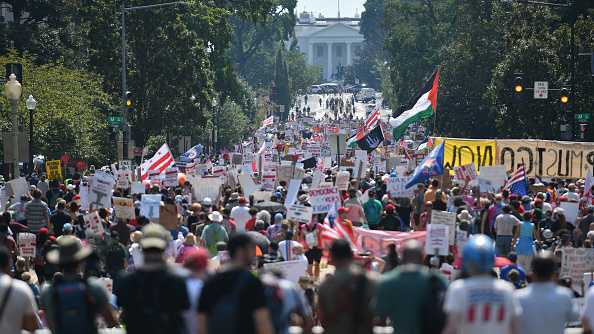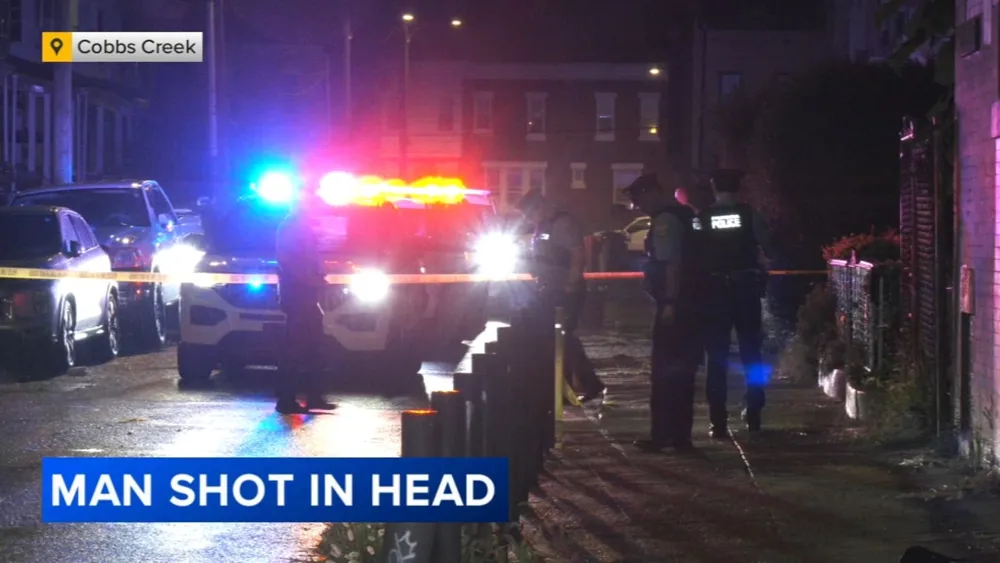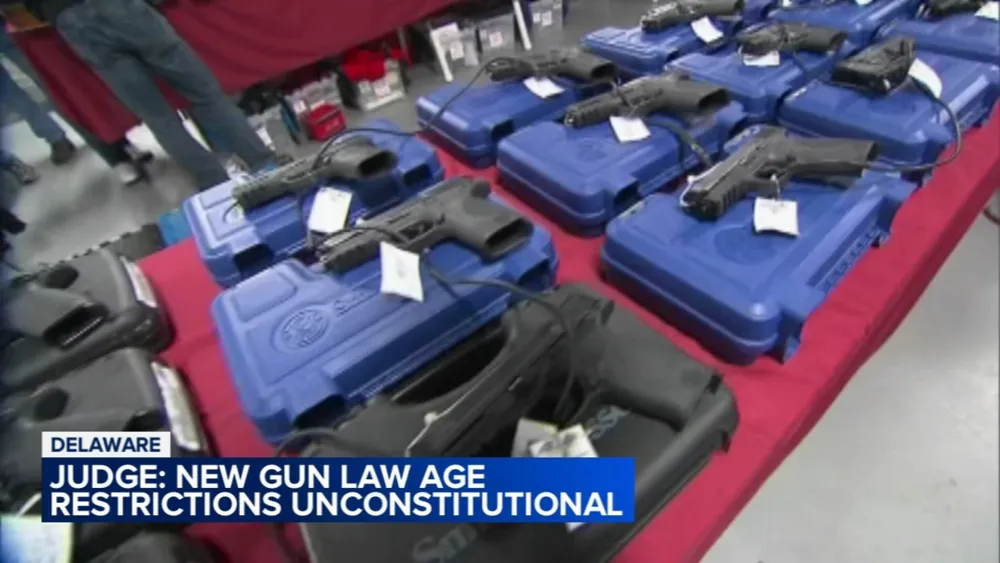Protesters speak out as cities brace for next steps in Trump's crime, immigration crackdown

The feud between the White House and Democratic-led cities over immigration and crime enforcement is escalating.Protests broke out in Chicago on Saturday as President Donald Trump renewed his promise to send National Guard and ICE agents to the city. "I love the smell of deportations in the morning. Chicago about to find out why it's called the Department of WAR," Trump wrote on social media, referencing his rebrand of the Department of Defense. Responding in a post on "X," Gov. JB Pritzker said Illinois "won’t be intimidated by a wannabe dictator.""The President of the United States is threatening to go to war with an American city. This is not a joke. This is not normal," Pritzker added. As of early Sunday morning, the details of the president's plans for Chicago remained sparse, but his comments have put immigrant communities on edge amid Mexican Independence Day celebrations, some of which have been canceled in anticipation of stepped-up raids around Chicago."I'm telling people to know your rights, be extra careful," Pritzker said at a press conference last week. "Don't play into their hands, and if you have the opportunity, please protest. Pull out your phone, video everything that they're doing."Enforcement is ramping up in other places, too. On Saturday, federal authorities confirmed that the Trump administration has initiated an immigration crackdown in Boston dubbed "Patriot 2.0." The White House is simultaneously suing city officials over alleged interference with federal efforts.On Friday, federal agents detained hundreds of people during a Hyundai plant raid in Georgia, which officials are calling "the largest single-site enforcement operation in the history of Homeland Security investigations."The president has suggested that other Democrat-led cities, like Baltimore and New Orleans, could be next. It follows Trump's unprecedented federal intervention in Washington, D.C. Thousands spoke out in protests on Saturday as the president's law enforcement takeover enters its fourth week. "We've done an incredible job, and we'll be doing that with other cities throughout the country," Trump said on Friday, pointing to data suggesting violent crime in D.C. has dropped since his operation started.Trump's emergency declaration taking charge of local D.C. police is set to expire on Wednesday, and an extension from Congress does not appear to be imminent. D.C. Mayor Muriel Bowser, who has been critical of Trump's strategy, nevertheless signed an executive order last week outlining a framework to continue coordinating with federal law enforcement. “I want the message to be clear to the Congress, we have a framework to request or use federal resources in our city. We don’t need a presidential emergency," Bowser told reporters on Wednesday.There are signs that the president's use of the National Guard in D.C. will continue for longer. Georgia Gov. Brian Kemp announced plans to send 316 members of the state’s National Guard to Washington, D.C., later this month, building on the president's initial deployment and following suit with seven other Republican-led states. Meanwhile, legal challenges are mounting, and there could be more lawsuits on the horizon.Gov. Pritzker has threatened to sue the Trump administration if the president deploys the National Guard to Chicago without his permission. D.C. is also challenging the president's use of the guard and asking a federal court to intervene. A similar legal battle is playing out in California after the president sent troops to Los Angeles earlier this year in response to immigration protests. Last week, a federal judge ruled the LA deployment broke a law prohibiting the military from engaging in domestic law enforcement activities, which the Trump administration denies. The judge sought to restrict the guard's role starting Sept. 12, but an appeals court put implementation on pause, allowing for arguments in the case to be more thoroughly examined.

